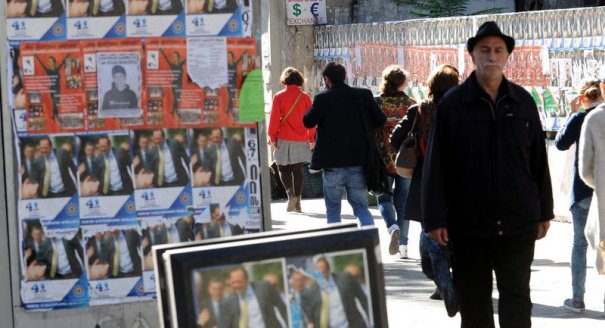I am going to discuss Georgia again. You may say that the Georgian elections are over and one can forget about this country. I disagree. Now is the time when Georgia embarks on an experiment that will determine more than just its future. The experiment will reveal the possible trajectory of other post-Soviet states that will attempt to move toward an open society. I am talking about creating a tradition of peaceful power transfer in Georgia. Mikheil Saakashvili has accomplished part of this mission and joined the ranks of opposition along with his party. His departure following his defeat is a tremendous achievement for the young Georgian democracy. But whether the tradition of a peaceful transfer of power will take root in Georgia is up to the new victors—the Georgian Dream Party and its leaders.
So far, the victors’ demeanor gives rise to some concerns. After the Georgian Dream came to power, quite a few members of Saakashvili’s team, including former prime minister Vano Merabishvili, wound up behind bars. They are accused of graft, embezzlement, fraud, and other unsavory behavior. Hence a question: is there a guarantee that the Georgian judiciary will act impartially and is not swayed by political expediency in a society where the Soviet mentality is still alive and the rule of law has not yet taken hold?
Meanwhile, the key question now is whether Saakashvili will find himself in jail. “Of course, it is possible… Saakashvilli will not be arrested before the Vilnius summit (November 28—LS). After that, anything is possible,” the authoritative Georgian political analyst, Ghia Nodia notes. Saakashvili is clearly not an angel. While trying to turn Georgia into a European country, he evidently failed to force or convince the country’s elite to act according to European rules. But if he shares the fate of Yulia Tymoshenko, it will not simply be a blow to Georgia’s immediate plans to integrate into Europe. It will be a blow to the emerging tradition of transfer of power in the country. If Saakashvili and his team end up in jail, it will sound a warning to the current Georgian leaders, inducing them to never relinquish power!
What is happening in Georgia now demonstrates how difficult it is to strike the right balance of principles. In fact, the developed democracies also find it hard. The West, for instance, has not yet found balance between ensuring security and protecting privacy, which is evidenced by the recent phone monitoring scandals that involved some European leaders. It is important for the young democracies in transition to also find balance of other principles, primarily the balance between legal requirements and incentives that would ensure peaceful transfer of power. Providing immunity from prosecution for a departing political leader can become such an incentive.
As the Tymoshenko case bears out, Ukraine was not able to provide immunity from prosecution to the defeated leader, nor could the judiciary render an adequate judgment in that case. Can this be done in Georgia?
Europe has already linked Tymoshenko’s release to signing the Association Agreement between Ukraine and the EU. It is important that Georgia’s association with Europe be also linked with providing immunity from politically-motivated prosecution for Saakashvili and his team.





